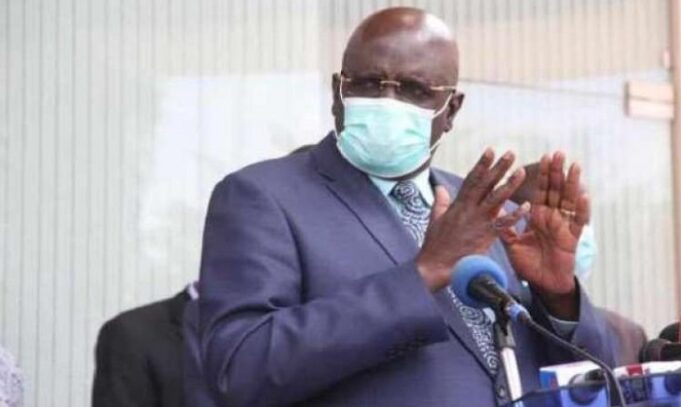FPE Report Reveals That Head teachers Lent Themselves School Money
Head teachers and board members of Primary schools will undergo a training on financial management to protect free education billions under their custody.
This follows a report that most members of Boards of Management in the 23,000 primary schools do not have basic financial and record keeping literacy, leading to poor accountability and wastage.
An audit on use of schools capitation funds by the Ethics and Anti-Corruption Commission (EACC) in 2016 raised many gaps that cost the government billions of shillings.
Report
Several cases of inflated students’ enrolment numbers were unearthed as it also emerged that schools submitted records of their spending to the auditors, who could not verify the alleged expenditure.
The report also found that head teachers lent themselves huge sums of school money, used unofficial receipt books and outwitted signatories to the various accounts to inflate cheque figures.
The EACC report, which reviewed the free education funds disbursement and utilization systems, policies, procedures and practices also found that some heads compiled documents for non-existent projects and presented them as complete.
Proper resourse utilization
According to the schedule, the training started on Monday with the training of trainers, which runs until early next month before it is cascaded down to the school level. All head teachers and members of the board will be taken through accountability lessons and how to mobilise resources to plug deficits.
“All resources mobilised by the government and sent to schools must to be utilised properly for the benefit of the learner,” said Education Cabinet Secretary George Magoha
The training programme will be funded by the Global Partnership for Education (GPE) through the Kenya Primary Education Development Project (Priede).
Read also
How To Apply For Replacement Of Your Lost KNEC Certificate Online
Matiang’i’s Parallel line-up For May Elections Sends Panic To Sossion
International Unions Urge Uhuru To Intervene In Knut, TSC Dispute
KNUT Promises To Fight For Implementation Of 2017-2021 And 2021-2025 CBA
Stop Hypocrisy And Keep Off Our Issues With TSC, KNUT Snabs KUPPET
Lowest Earning Teachers In Each Job Group Win Big In New Salary Point Mergers
Teachers With Lower Salary Points Win Big In The Recent Merges
SRC’s 2021-2025 CBA Shocker For Teachers
The trainings will be based on Ministry of Education policy guidelines for utilisation of learner capitation grants and other school funds.
The overall objective of the policy guidelines is to ensure school resources are well managed, accounted for and effectively utilised.
Magoha said development of the policy guidelines, which was informed by the evaluation of the School Improvement Programme (SIP) process, provides a framework to guide utilisation of capitation grants and other school funds.
“It is expected that this policy will be applied by key players to enhance transparency and accountability in the utilisation of education resources at school, sub-county, county and national levels,” said Magoha.
The guidelines seek to strengthen governance and management of learner capitation grants and other school funds in all public schools.
To achieve results, the training guideline says the government will enhance stakeholders’ capacity at both school and national levels on governance and management of learner capitation grants.
Establishment of a comprehensive risk management framework to monitor and control risks in order to realise set objectives, and enhancing monitoring and reporting of learner capitation grant and other school funds use are also listed in the plan.
Commitees
Four committees will be put together at national, county, sub-county and school level, to oversight utilisation of the resources.
At school level, the boards will oversight the utilisation of learner capitation grants and other school funds.
Part of this will entail establishing a school improvement planning committee and coordinate effective and efficient management and accountability of school resources.
Other EACC findings on schools’ use of capitation funds revealed that the penalties meted out on teachers found to have misappropriated funds only led to impunity.
The report said demoting and transferring errant teachers strengthened their resolve to steal.
Overall, the report noted a number of issues, which should be addressed to enhance efficiency in disbursement of Free Primary Education (FPE) funds.
“In order to ensure implementation of the policy at school level, the Ministry has drawn a comprehensive programme to roll out training through a cascade model.”
This will involve inducting a small team of trainers who will in turn teach the headteachers and chairpersons of school boards from all public schools at the zonal level.
The budget implementation, under FPE and Free Day Secondary Education (FDSE), is categorised into recurrent and development expenditure.
The recurrent activities are mainly facilitated through the capitation grants while the development aspect is funded by other grants from the government and other sources.




